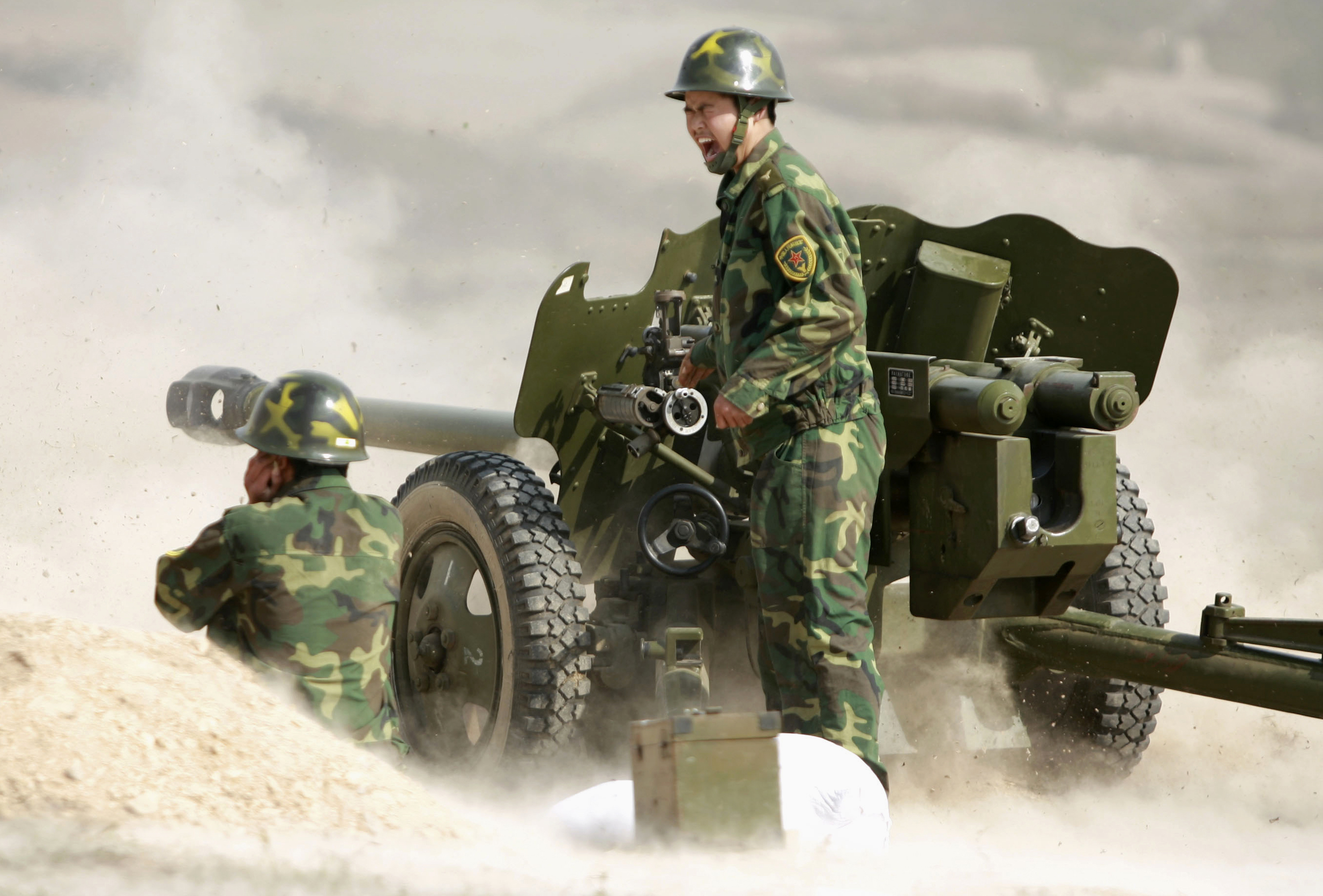Just how badly could China hurt America in battle?
Answer: Not nearly as much as you might think

A free daily email with the biggest news stories of the day – and the best features from TheWeek.com
You are now subscribed
Your newsletter sign-up was successful
Last month's confrontation at sea between the People's Republic of China and the United States made one fact all too clear: The two countries have very, very different national interests in key strategic areas.
The United States, the dominant power in Asia and the Pacific, would rather retain the status quo while the rising power China wants to carve out its own sphere of influence in the South China Sea. These interests are for the most part mutually exclusive — that is, China's gain must come at a cost to the United States, and vice-versa.
While neither country is interested in war, the two sides are beginning to use military forces — such as the USS Lassen — to get their point across. This leads to an interesting question: If the two countries were to go to war tomorrow, just how much could China hurt the U.S.?
The Week
Escape your echo chamber. Get the facts behind the news, plus analysis from multiple perspectives.

Sign up for The Week's Free Newsletters
From our morning news briefing to a weekly Good News Newsletter, get the best of The Week delivered directly to your inbox.
From our morning news briefing to a weekly Good News Newsletter, get the best of The Week delivered directly to your inbox.
We all know the United States has the world's most powerful conventional and nuclear forces. And war with China is a long, long way off. But for all of the talk of China as a rising military power, modernizing its armed forces with more powerful, more efficient weapons, how much damage could China inflict on the United States?
The answer: not nearly as much as you might think.
For much of Communist China's history, China was a poor country that concentrated on almost purely defensive warfare. As late as 1979, in its disastrous war with Vietnam, it was still practicing ineffective human wave attacks and unable to maintain supply lines five miles long.
Right now, China's military forces are still in the beginning stages of a massive modernization and organizational overhaul. Although China is currently in the process of improving its nuclear forces and expeditionary warfare capability, it still has a long way to go.
A free daily email with the biggest news stories of the day – and the best features from TheWeek.com
Only a small portion of China's conventional forces are capable of targeting American bases overseas, and none of them are capable of attacking the American homeland. Chinese long-range conventional missiles and bombers could target American bases in Korea, Japan, and even as far as Guam, but could not reach Hawaii or even Alaska.
China's navy is rapidly growing, with new carriers, destroyers, submarines, and support vessels leaving the country's shipyards at a startling rate. But the Chinese navy is still much smaller than the U.S. Navy and less capable overall. A Chinese submarine surfaced near the aircraft carrier USS Ronald Reagan just last week, but we don't know if Reagan and its task force detected the submarine first. China's only aircraft carrier, the Liaoning, has never left the Western Pacific and functions primarily as a training carrier.
In a war with America, China's ground forces would have to cross oceans just to reach anywhere useful, and have only four large Type 071 amphibious ships capable of lifting a total of just about 8,000 troops — at the very most. Even then, the overwhelming presence and firepower of the U.S. military would sink all four long before they became a threat.
Conventionally speaking, China could threaten American overseas bases but is unable to touch the American homeland. Nuclear weapons, on the other hand, are an entirely different matter.
Still, China's nuclear forces are probably smaller than you might think. China has an estimated 190 operational nuclear warheads, divided between land-based missiles and ballistic missile submarines.
China has about 50 intercontinental ballistic missiles (ICBM), and though these missiles could reach the continental United States, only a third could reach as far as New York City. Each ICBM has three warheads, each warhead with the destructive power about 20 times that of the bomb dropped on Hiroshima.
China also has four Jin-class ballistic missile submarines, and ideally at least one submarine is supposed to be ready for action at all times. Each sub carries 12 JL-2 submarine-launched ballistic missiles. Unfortunately for China, these missiles have relatively short ranges and could not hit New York City unless the subs themselves were positioned halfway across the Pacific Ocean.
In the event of a sudden nuclear war, China could launch — at the very most — 62 missiles against the United States. That's enough to ruin anyone's day, but it's far short of the hundreds the United States or Russian Federation could suddenly unleash on each other — or China.
All of this is not to say that China is not a potential threat, nor is war anywhere near likely. Even a Cold War between the United States and China is unlikely due to their economic interconnectivity.
But the U.S. and China will likely become competitors in at least some context. Like checking the rear view mirror, it's a good idea to periodically examine their relative power against one another. In the meantime however, China is very much in the rear view mirror, and has a long, long way to catch up.
Kyle Mizokami is a freelance writer whose work has appeared in The Daily Beast, TheAtlantic.com, The Diplomat, and The National Interest. He lives in San Francisco.